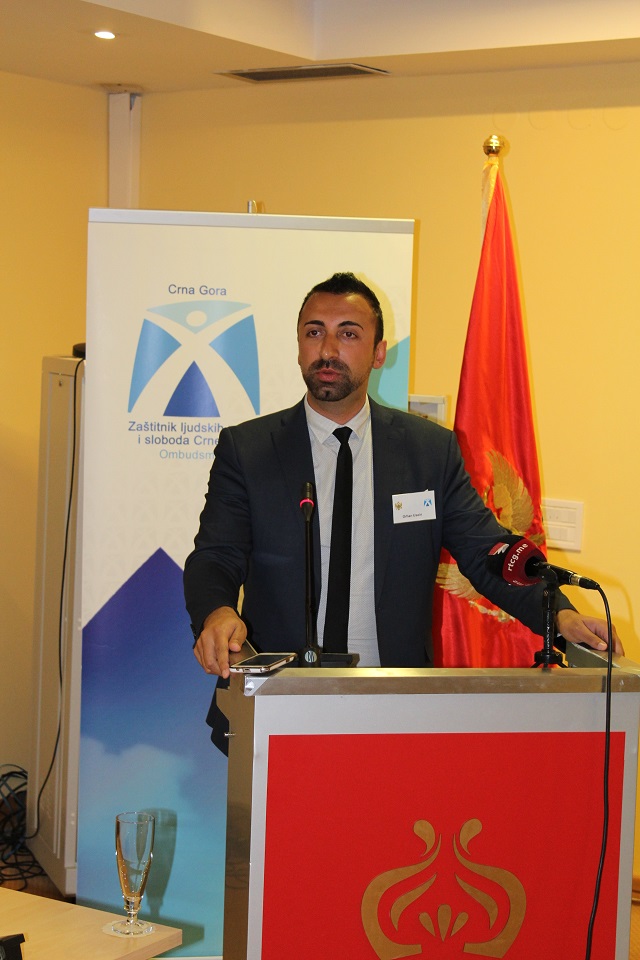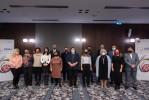Streamlining Roma issues in the regional discourse on discrimination at work and in employment
- 30 May 2017
- News

Orhan Usein, Action Team Leader (photo by: Ombudsperson's office Montenegro)
Discrimination at work and in employment affects human dignity and restricts human rights and freedoms. Responsible institutions must respond properly to this phenomenon. This was the key message from the opening of the regional conference “Discrimination at work and in employment” held in Bar, Montenegro on 30-31 May 2017. The conference was organized by the Ombudsperson of Montenegro in cooperation with the Regional Cooperation Council’s Roma Integration 2020 project, the Conrad Adenauer Foundation, the Organization for Security and Cooperation in Europe and the Council of Europe.
Mr Filip VUJANOVIC, the President of Montenegro, emphasized that the conference should serve the purpose to maximize the motivation of the state and all stakeholders in the society to prevent misuse and discrimination in the labour market. Mr Sucko BAKOVIC, the Ombudsperson of Montenegro, noted that discrimination in the labour market is widespread and represents more than a third of the discrimination cases within the office. The Montenegrin Minister of Labour and Social Care, Mr Kemal PURISIC, stated that the legislation banning discrimination in the labour market was in place, but the reality was not reflecting the legislation. Among various international supporters, Mr Orhan USEIN, Action Team Leader of the Regional Cooperation Council’s Roma Integration 2020 project, also addressed the conference and focused on the data clearly showing enormous inequalities between Roma and non-Roma in the field of labour market, combined with the data from the Regional Cooperation Council’s Balkan Barometer, showing significant resistance of employers to employ Roma.
The conference gathered representatives of the equality bodies, employment agencies, trade unions, employers’ associations, civil society organizations and experts from the region to discuss various aspects of the topic, including actual cases of discrimination proceeded through the judicial system and the results of such cases. Ms Aleksandra Bojadjieva, Policy Expert of the Regional Cooperation Council’s Roma Integration 2020 project provided a key note speech during the conference panel on the experiences of the most vulnerable groups. Noting that the economies were actively implementing Roma inclusion policies from 2005, including in the field of employment, while not changing the situation on the ground significantly, it was concluded that the methodology need to be changed. Such a change must take into consideration the underlying root-cause of inequality of Roma, which is discrimination, when formulating any meaningful policy that is meant to produce tangible and sustainable results.
Roma Integration 2020 enabled National Roma Contact Points to attend the conference and learn about the situation regarding discrimination in the labour market, while also discussing the challenges related to the inclusion of Roma, with a view to find synergies and use the knowledge for implementing more effective Roma integration policies.






